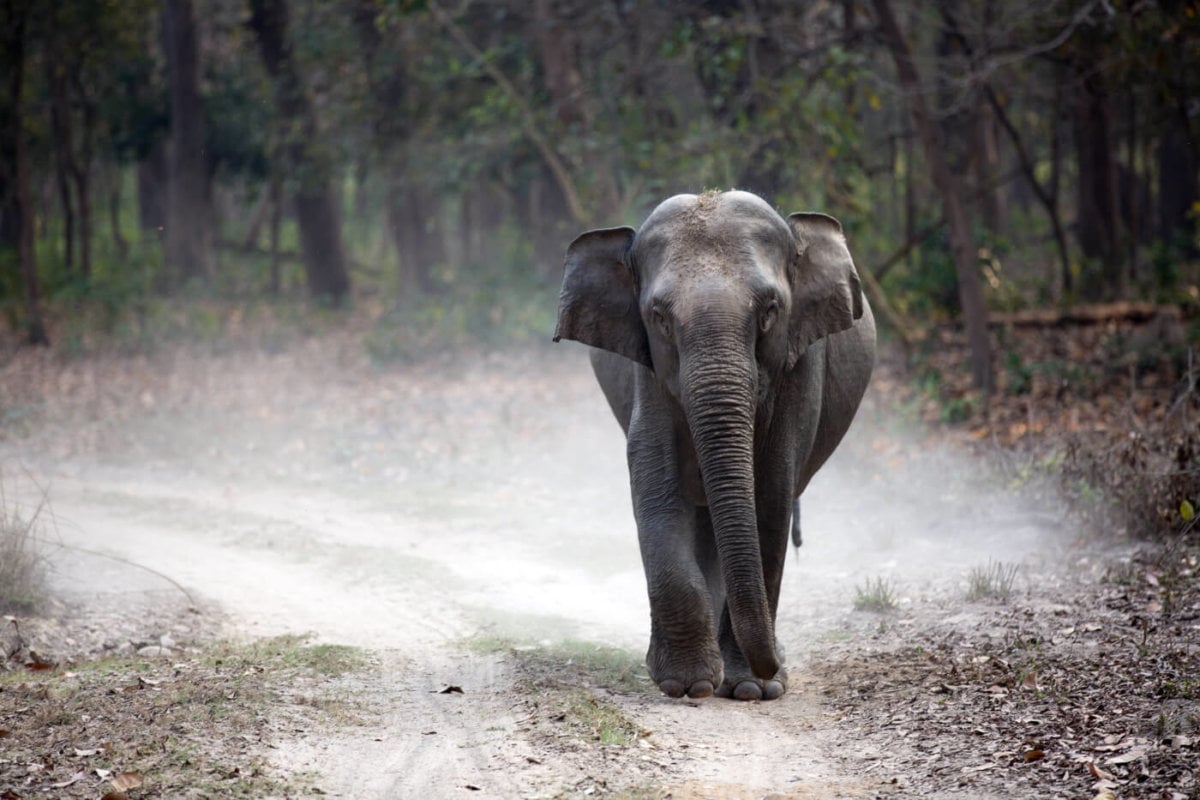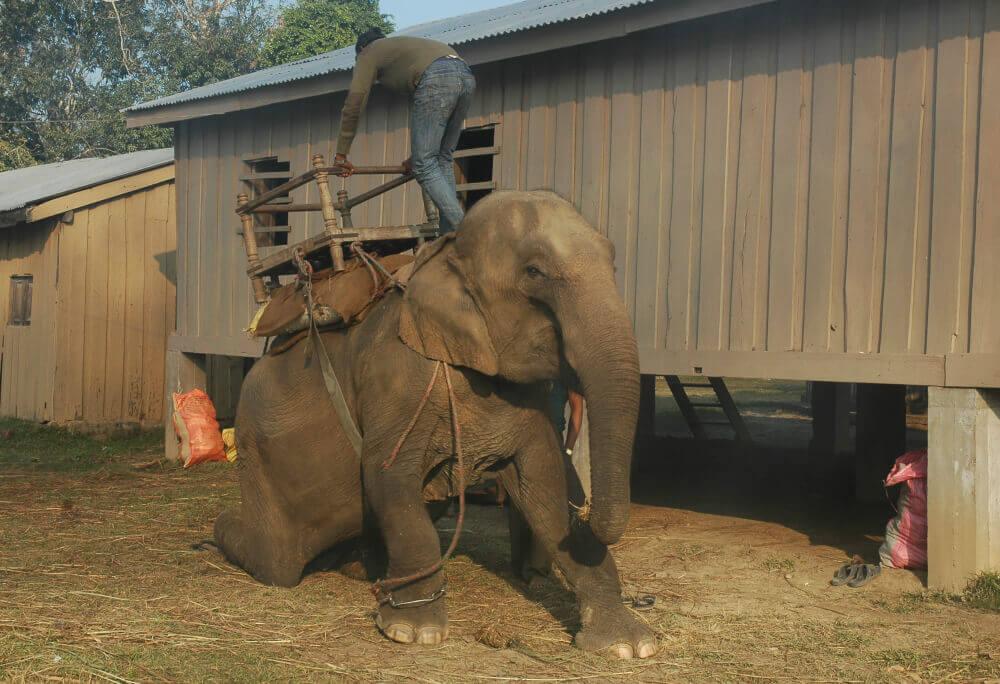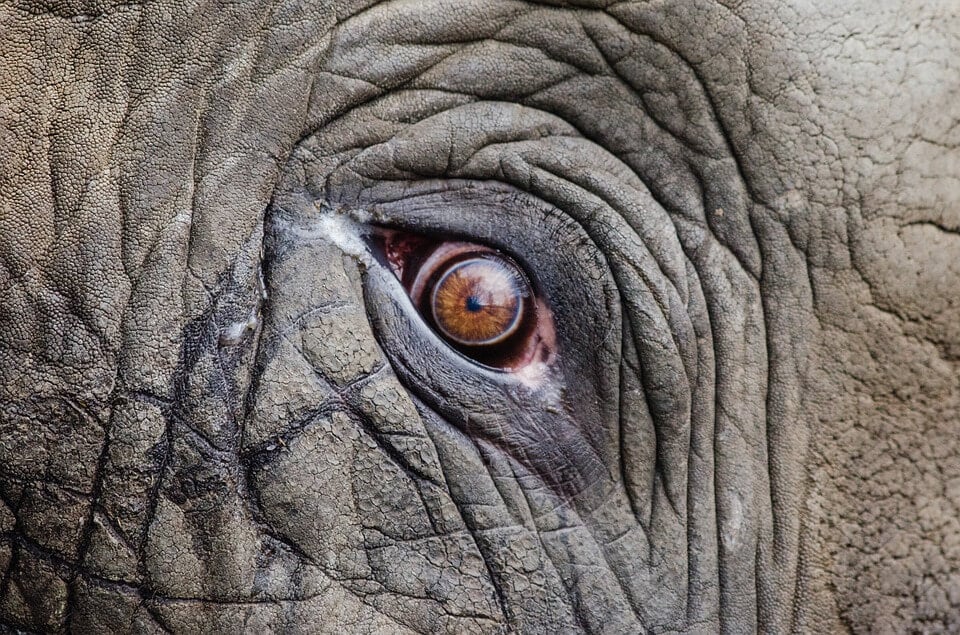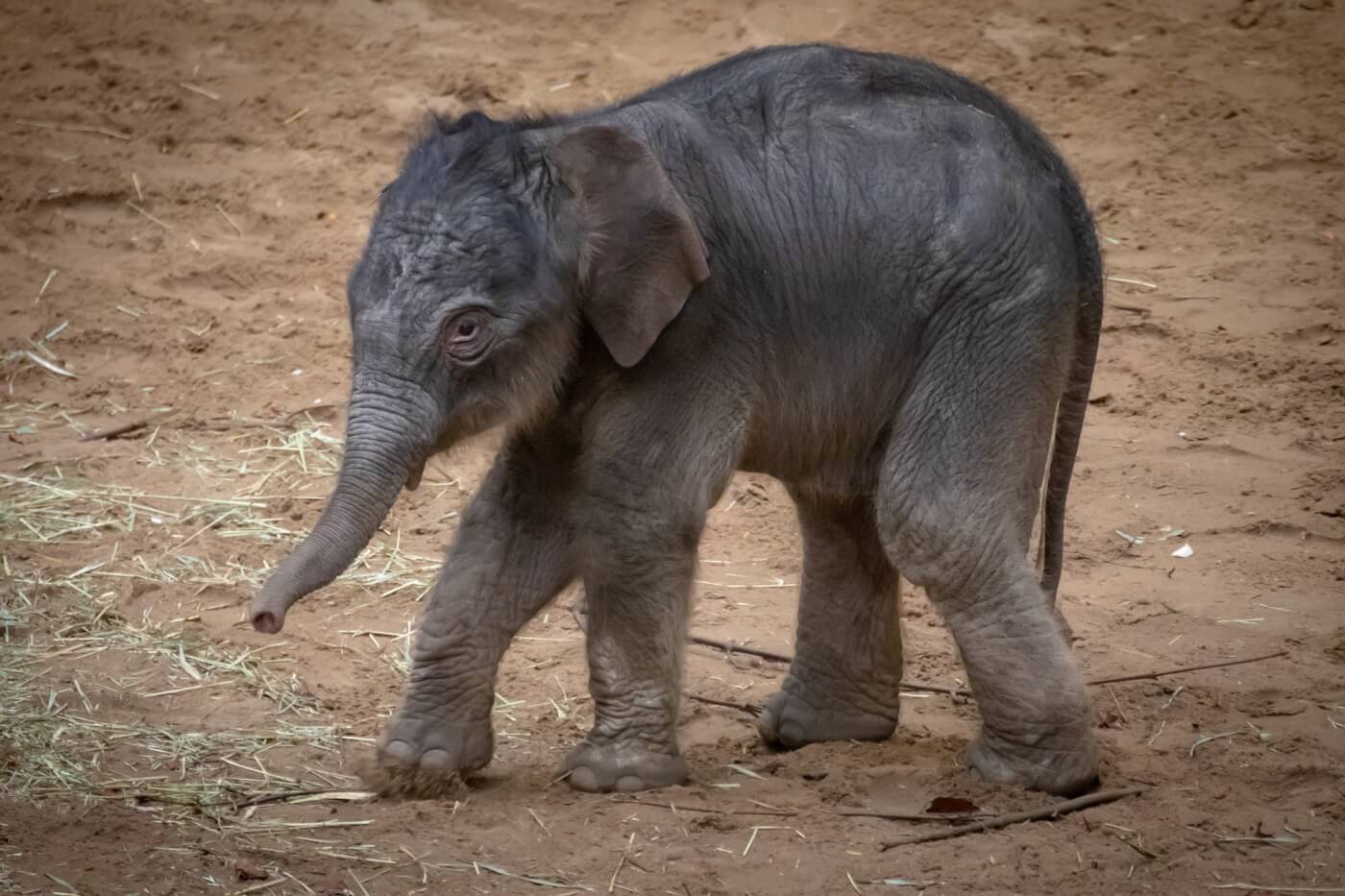Take Action for Elephants
Elephants are highly social animals who form strong, lasting bonds with their family members. They work together to solve problems and rely on the wisdom, judgment, and experience of their eldest relatives. In their natural homes, elephants spend their days socializing, swimming, browsing, and playing.
Though exploiting elephants for entertainment has fallen out of favor with compassionate consumers, some circuses and other traveling shows continue to profit from the cruel practice. Handlers beat, shock, and whip them until they learn to perform meaningless, confusing tricks that have no connection to their natural instincts and behavior. At tourist traps around the world, elephants who are made to give rides to humans are chained and beaten into submission. Many exploiters hold them in isolation from other members of their species. The boredom, stress, and trauma of captivity can lead elephants to exhibit abnormal and harmful types of behavior, such as constant swaying and increased aggression. Most captive ones die decades short of the natural life expectancy of their species.
Enough is enough.
From this page, you’ll be able to complete multiple PETA action alerts to help these animals.

Elephants Used for Tourist Rides
Elephants are forced to give rides through violence and domination. Training begins early on. Young ones are taken from their frantic mothers’ sides and are then tied down and beaten with bullhooks and other instruments. The process continues until their spirits are broken and they’re fearful enough to obey their trainers in order to avoid pain. Elephants made to give rides are routinely denied nutritious food, adequate water, and needed veterinary care, especially for their feet. Countless humans and other animals have sustained injuries and even been killed when captive elephants have snapped and struck back.

Every fair attendee or festivalgoer who pays to ride an elephant—and every overseas traveler who books an excursion involving captive elephants—has a hand in supporting this merciless cycle of abuse. You can make compassionate travel decisions by never patronizing businesses that exploit wild animals or allow direct contact between humans and animals, even facilities that claim to be sanctuaries.
Elephants Held in Solitary Confinement
In their natural homes, elephants move about and socialize with others of their species. They live in complex societies, surrounded by loved ones—but in captivity, they’re often isolated (or nearly so). When used for entertainment, they’re frequently separated from their families and friends. Elephants are intelligent, self-aware animals with long memories. They suffer and grieve when they’re forcibly taken from their families, just as humans would. Isolation is devastating for these gregarious animals.
Elephant calves nurse for several years while learning crucial social and behavioral skills from their mothers and other relatives. Mothers and their offspring share an intense emotional bond, and breaking that bond causes immense psychological distress. Splitting up elephant families has a severe impact on each individual, and the trauma can cause lifelong behavioral problems—such as aggression, a lack of appropriate social skills, and an increased frequency of abnormal behavior.
Boredom, stress, lack of exercise, and inadequate facilities cause elephants to develop abnormal types of behavior—such as rocking and swaying—never seen in the wild. In addition to having short life expectancies, those in captivity have high rates of painful and chronic health problems, such as nail cracks, abscesses, obesity, and arthritis.
Ready to Start Helping Elephants?

Elephants Used in Circus Acts
Elephants used in circus shows live a dismal life in which they are dominated, imprisoned, and violently trained. Held like prisoners, those made to perform are often stuck in cramped trucks, shackled in barns, or forced to do tricks, and each wrong move leads to a painful strike from a bullhook.
In order to train them, still-nursing baby elephants are roped around all four legs and dragged away from their mothers. From that point forward, they’re punished every time they attempt to engage in any type of instinctive, natural behavior until they become submissive and obedient.
Most elephants used by circuses and zoos were captured in the wild and forced to leave their freedom and families behind. These industries spin captive breeding as a way to help prevent elephants from going extinct, but it’s bad for the captive animals—who need more than a patch of dirt and food to thrive—and accomplishes nothing for the species in the wild.
In order to keep exhibits stocked, facilities have turned to experimental artificial insemination procedures that involve inserting probes, catheters, and scopes into an elephant’s rectum and reproductive tract. These highly invasive procedures can take hours to perform and are typically repeated many times each cycle, often for years, before an elephant ever conceives. Rates of stillbirths and infant mortality are extremely high in captive elephant populations. Exhibitors spend millions of dollars to keep a few elephants on display, when that money could go so much further if spent on conserving habitats and protecting the species in the wild.
If you want to help animals daily, there are tons of ways to get involved. Follow PETA on Facebook, Twitter, Instagram, and YouTube to stay up to date on our latest campaigns. Subscribe to PETA News to get weekly updates on our efforts. And be sure to complete the PETA action alerts below—they all allow you to help elephants exploited for entertainment.

Get Started Now
There are multiple opportunities to help. As soon as you take one action below, another will automatically appear in its place.
Just enter your information once, then keep clicking the “Send Message” button until you’ve completed them all. Once you’ve finished, be sure to share this page with your friends, family members, and social media followers. Encourage them to join you in helping to stop the exploitation and abuse of elephants.